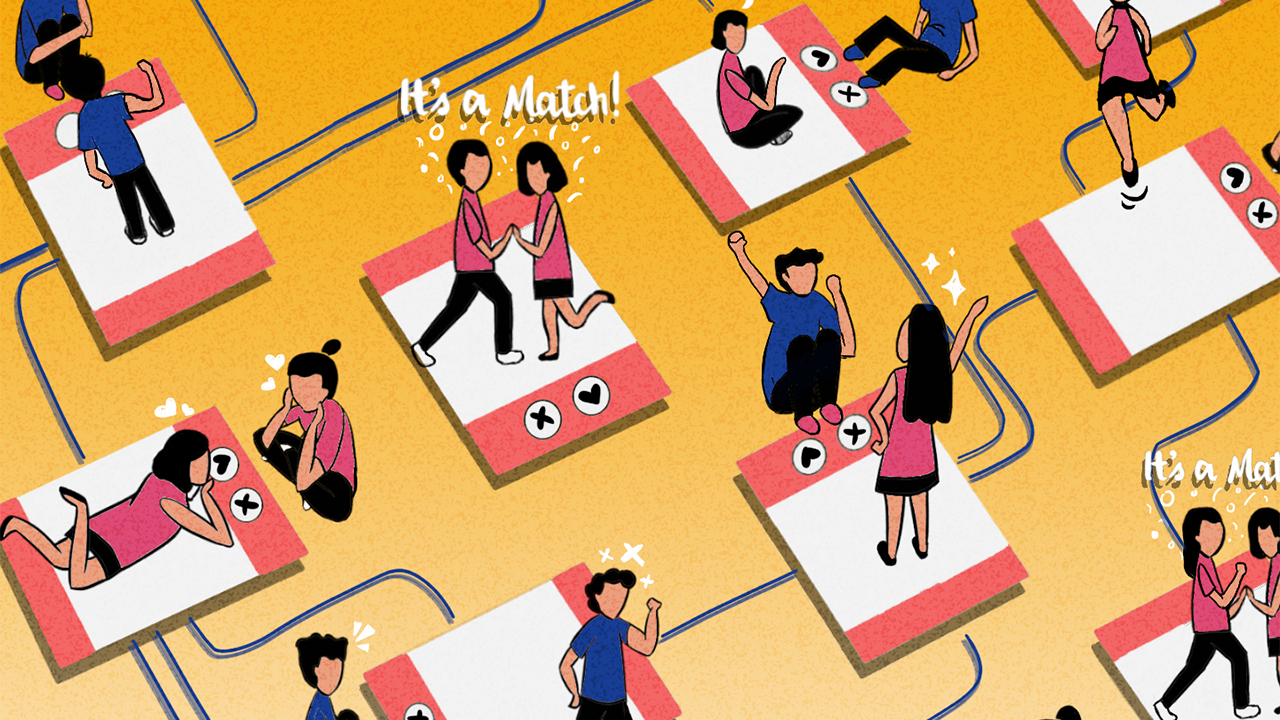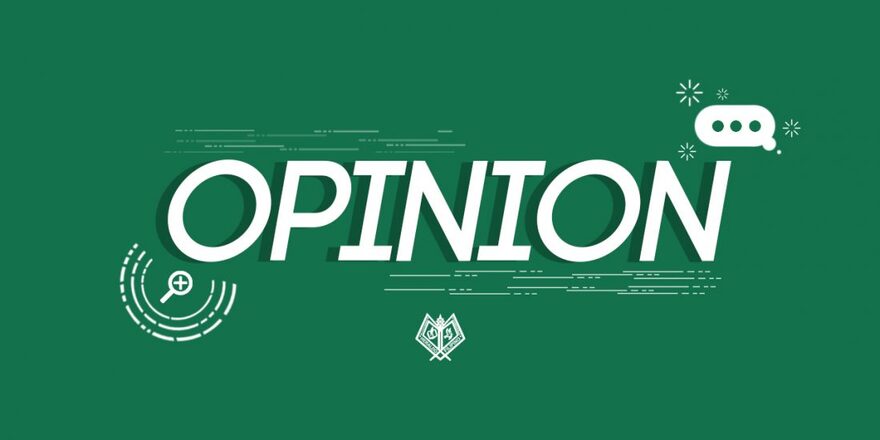The math behind the match: How algorithms work in online dating
Gone are the days when we were told to not talk to strangers. The way we think about dating has changed over the years. Today, we witness the development of technology and how it intertwines with our lives—even in the way we interact with other people and form connections with them.
However, along with the rise of online dating sites comes new questions about the ever-baffling concept of dating—including how algorithms work within the mystery of this human interaction.
The rise of online dating: It’s complicated
The way we see dating itself is already complex, encompassing a wide range of concepts revolving around the culture of romance intertwined with technology.
Due to the rising popularity of online dating and the emergence of online dating sites, the industry has grown and is worth $2 billion according to The Fiscal Times. From the first prominent online dating site Match.com launched in 1995, eHarmony in 2000 and OkCupid in 2004, and up to now, online dating has only grown and emerged further through mobile applications, such as Tinder and Bumble.
The rise of online dating changed how people get to meet new people and form relationships. Before online dating sites, we find dates by putting ourselves out there, meeting new people in real life and engaging in conversations and social activities. The rise of technology has brought so many changes to our daily lives. This brought a difference to how we meet new people, allowing ourselves to put ourselves out there in the digital world through different dating sites.
Putting yourself out there: Algorithm in the works
Although you might think that the hunt is the challenging part of online dating, building your profile is actually the main obstacle, because one’s profile is what the potential match could see at first before the first date.
Building your profile involves disclosing details about you, from your basic information like your birthday to how much you like referencing to How I Met Your Mother.. Different online dating sites also ask questions about a user’s preferences in a partner such as personality traits, preferred hobbies, and ideal dates.
The question on how online dating sites use the data provided by users arises in figuring out how dating sites set matches. The data you input plays a role in how online dating sites predict potential matches for you. It is what algorithms analyze and try to make sense in matching you to other people who could be your match. Online dating sites vary in the use of different methods in matching people, but it’s all in the maths.
You might think that mathematics and relationships are two concepts that are far from each other, but online dating bridges these two concepts together.
Imagine a pool of many people searching for someone they could be with—it can be overwhelming. This is where algorithms come in.
American dating site OKCupid identifies itself through its use of mathematics in matching people. Their tagline “we use math to find out dates” already says so.. But how does algorithm work before two people who met online start hitting it off? It heavily relies on data that a user inputs when asked a variety of questions and tries to match the user with others who would answer likely in a similar way.
The thing is, algorithms could predict desire and attraction but compatibility is a different question. In Samantha Joel, Paul W. Eastwick and Eli J. Finkel’s research Is Romantic Desire Predictable? Machine Learning Applied to Initial Romantic Attraction, the prediction of romantic attraction to someone you meet online is easier, when basing on the data gathered from the questions asked by online dating sites. However, long-term compatibility may be challenging to predict before two people actually meet.
The two sides of online dating
The arguments for online dating points out to transcending barriers when it comes to meeting new people. It’s what the internet has made possible as well, having a connection with different people regardless of where they are from, making the bigger world seem smaller. It can even be described as an introduction to connecting with people in different walks of life, allowing opportunities to get to know people living a life that is different but as complex as yours.
OKCupid’s Vice President of Engineering Tom Jacques argue that dating apps are instrumental when it comes to finding love. According to him, online dating provides opportunities to break down barriers and allows you to connect and develop relationships to people you never expect to have the chance to meet.
On the flip side, there are also arguments appealing to the misconception that revolves around how people are connected online. Jacques argues that what online dating does is present the people who are available and show the things that can be used to connect. Rather than the physical aspects, the concept of online dating looks at the practical and behavioral measurements, looking at the availability of the person in the online realm.
Most of all, the entire concept of computer-mediated dating develops a tendency of encouraging people to treat others like transactional objects in a superficial manner. Sociologist Eric Klinenberg has described the transactional nature of dating apps that focuses on looking at what is seen online, which tell so little about how they behave in the real world, how they engage in conversations and how they perceive and read others’ body language, the basic emotional intelligence.
As stated in research article Online Dating: A Critical Analysis From the Perspective of Psychological Science, while online dating makes it easier for people to access potential partners, there’s this tendency that people are reduced to two-dimensional displays of information that do not capture someone’s totality, one that requires experiences of social interaction in evaluating compatibility with someone.
Online dating and the paradox of choice
Through online dating, connecting and meeting new people have become even easier with just a click of a button. Getting to know someone better, however, is a different story altogether. To many people, online dating has become another way to socialize, in a way that is very much like other social activities that provide opportunities to meet people.
The rise of different online dating sites has changed the way we think about our choices when it comes to looking for someone we could see ourselves with online. Online dating has given us a nearly endless choices of those we can date, introducing a faster way of screening and selecting those we think we would like with a quick swipe left or right. While this makes connections with other people easier, there’s this tendency that it makes us more picky. This paradox of choice makes us believe that there is something better out there, while possibly missing the opportunity that is right in front of you.
Author Barry Schwartz further explores this concept in his book The Paradox of Choice: Why More Is Less. He explains that delving into the variety of choices maximizes the search for perfection, thinking that the ideal someone we dream of being with may come. There is this tendency to keep one’s eyes open for something better to come, where there are hesitations before actually committing to someone.
***
It is true that gone are the days we’re told to never speak to strangers. Somewhere in the development of technology, the dating landscape has changed as well, opening doors for new people in your life. In the same way that we try to make sense of the mystery that lies in dating, algorithms also attempt in helping to deal with the question of finding someone you can have a connection with. Who knows what could come next in the future?



